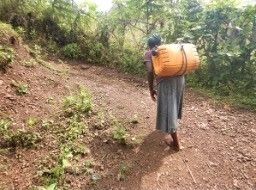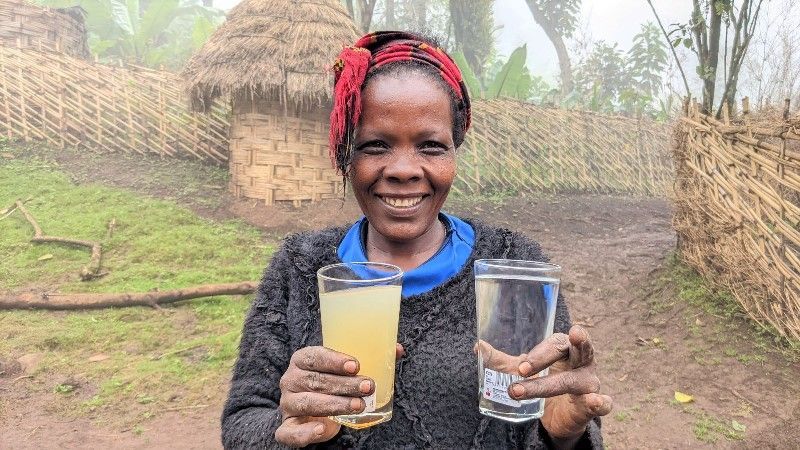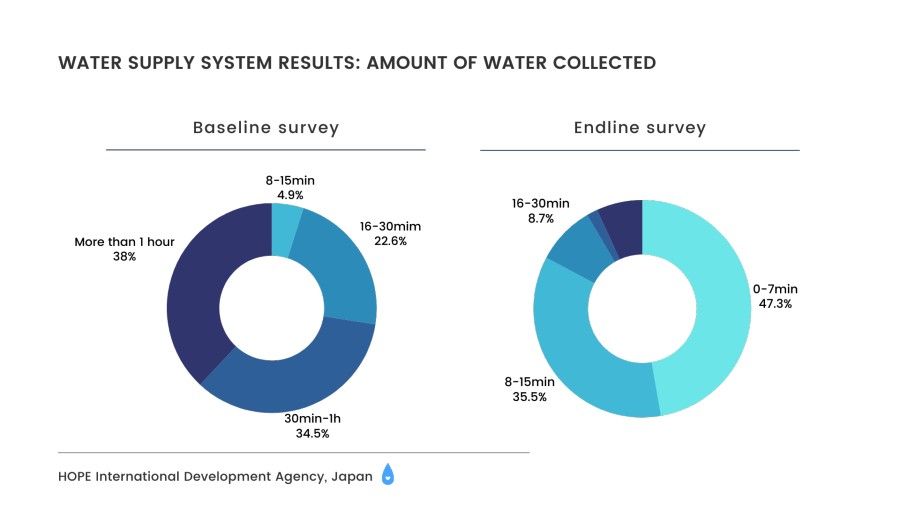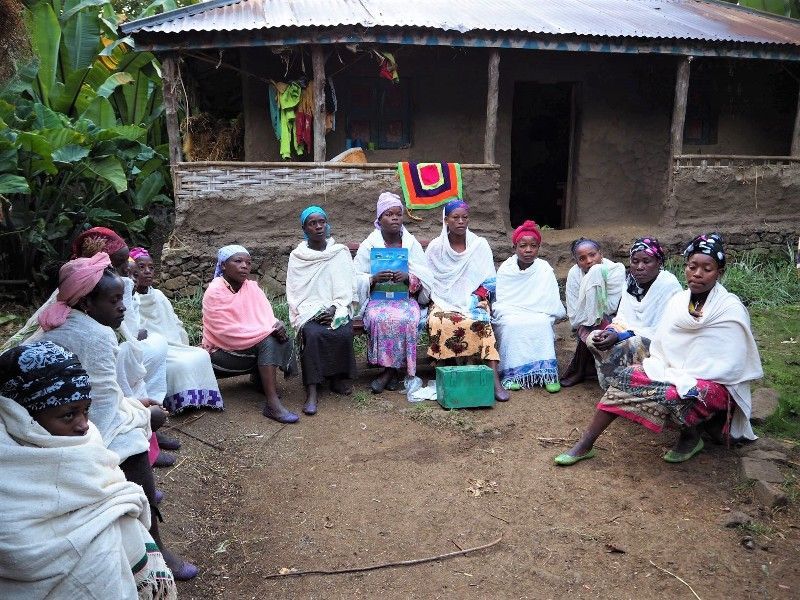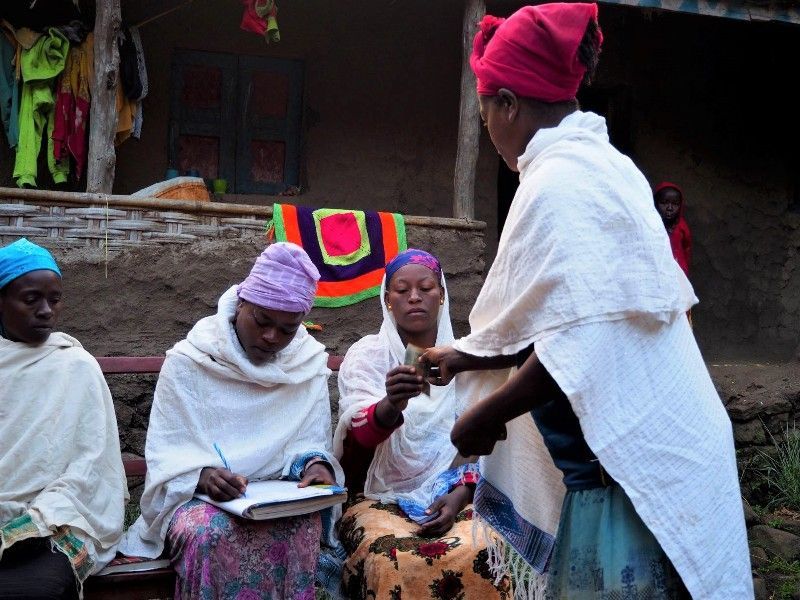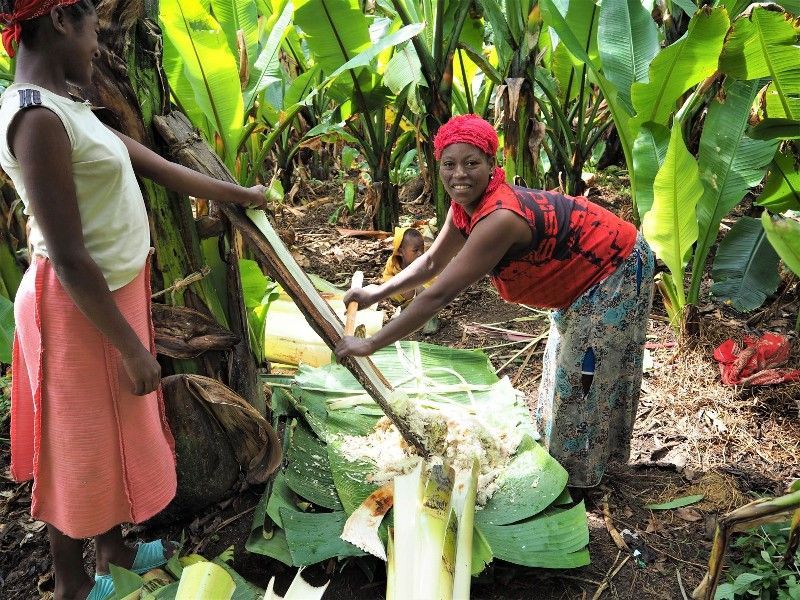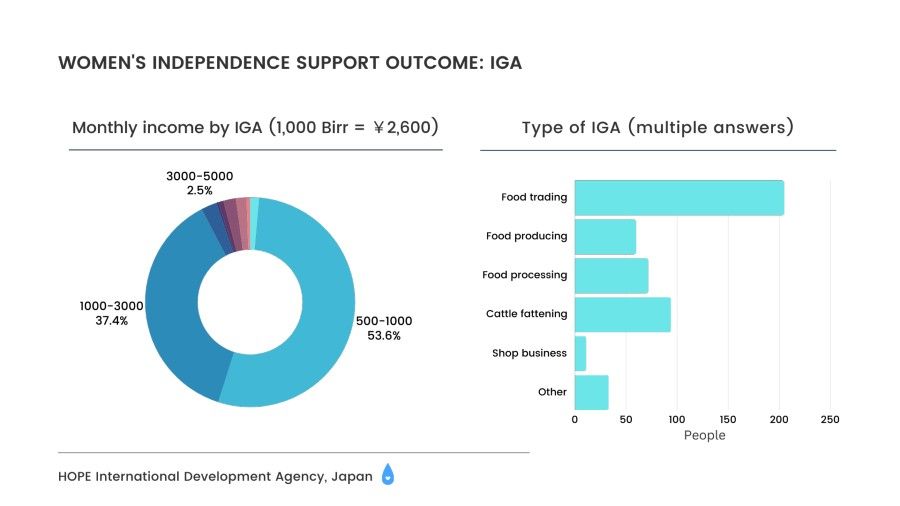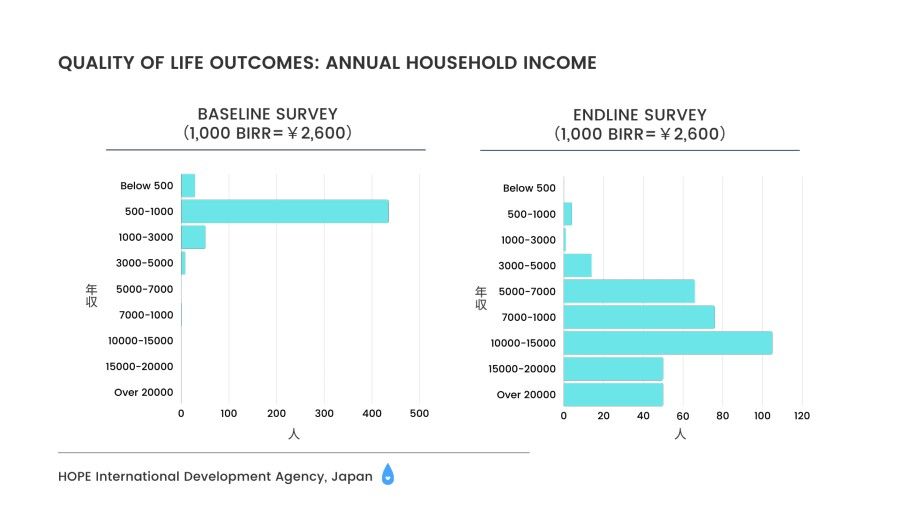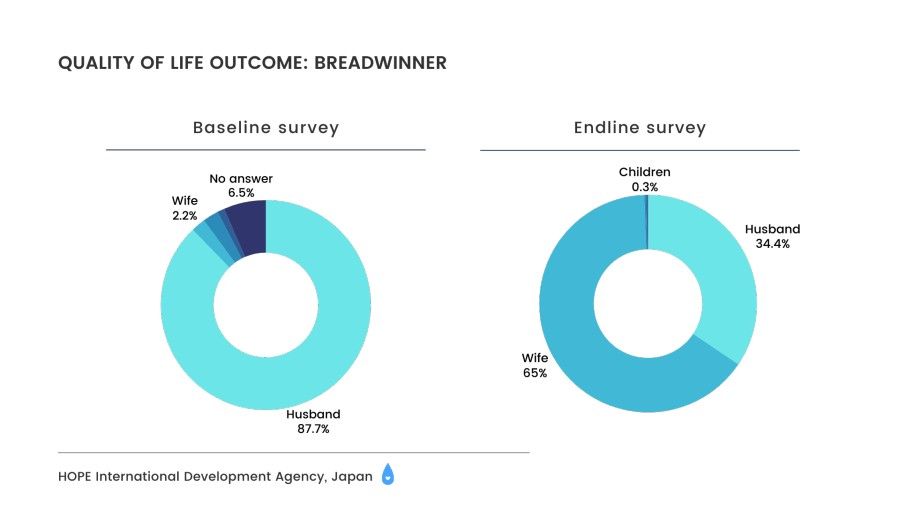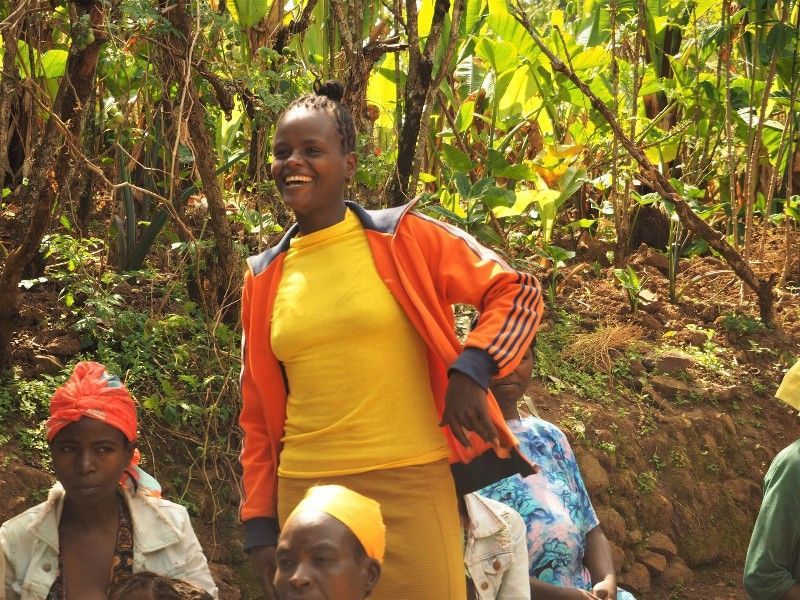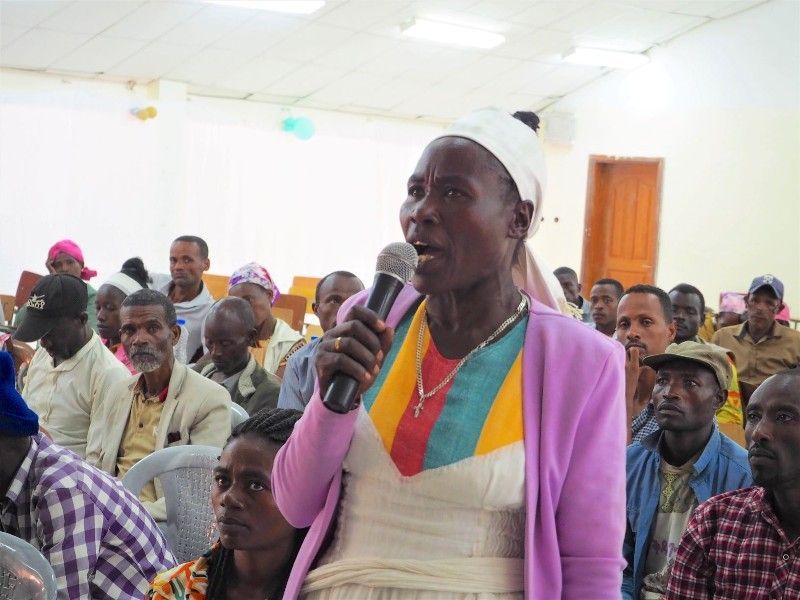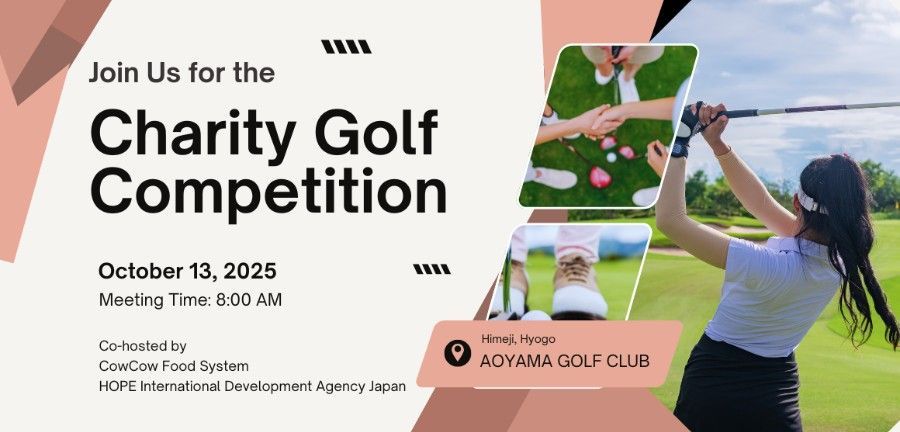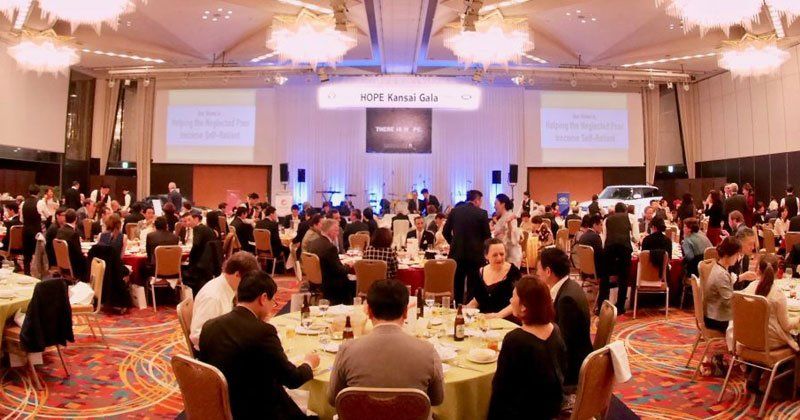When Women Shine, Communities Change
Results of Three Years of Empowerment Starting with Water in Ethiopia
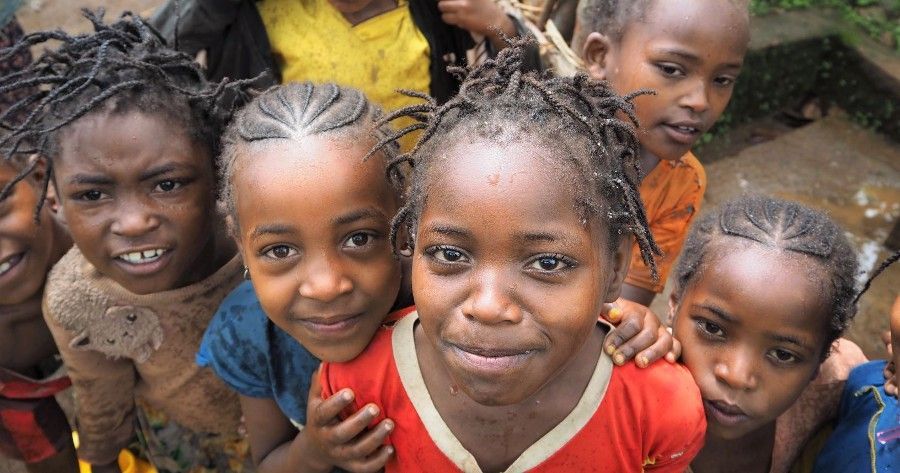
From February 2021 to the end of January 2024, the "Empowerment of Women through Community-Participatory Water Supply Project in Oida District" has successfully concluded. In this report, we present results of the project by comparing the findings from the initial conditions with the final assessments of the current situation.
Access to Safe Water
Before the project began, women used to carry about 10 liters of water in jerry cans on their backs, walking over rough and slippery mountain paths for over an hour to fetch water from streams or springs far from their homes. The water from these streams or springs was the only water source in the project area, despite being contaminated with feces and urine from livestock, domestic wastewater, and even human excreta. It was unsuitable for drinking or household use due to poor water quality. Fetching water also consumed a significant portion of women's daily life and energy, adding to their already burdensome household chores. In the Kale Malo district, some women would wake up at 1 a.m., walk for an hour to the stream, wait for two hours in line, then carry the water back home, taking another hour, often returning by 6 a.m. This routine exemplifies the hardship and time-consuming nature of water-fetching chores for women in the community.
As a result of this project, a total of eight water sources were established, along with eight storage tanks and 55 water distribution points. This initiative enabled safe water access for approximately 12,000 residents. The one-way travel time to water collection points significantly decreased from 1 to 1.5 hours at the start of the project to less than 30 minutes at its conclusion. Moreover, the daily water collection volume increased from an average of 20-30 liters to 30-60 liters per day, markedly improving residents' access to water. Additionally, the number of households with installed domestic toilets increased from 7% at the beginning of the project to 100% at its completion, indicating the success of concurrent health and hygiene education activities conducted alongside the construction of water supply facilities.
Alongside improving access to water, we also focused on empowering women. At HOPE, we adopted the Self-Help Group (SHG) approach, which has proven successful in developing countries like Ethiopia and India. Under the SHG approach, 20 women from the community form a group and engage in three main activities: (1) weekly group savings, (2) utilizing savings for loans, and (3) income-generating activities (small-scale businesses) using loans. The aim is to support individual women's entrepreneurship and income generation, thereby improving the lives of households and communities. Over the course of three years, HOPE facilitated the formation of 46 SHGs, supported income-generating activities for 920 SHG members, and aided in the establishment of five SHG cooperatives (CLA) and a women's federation that oversees SHGs and their cooperatives.
Through training sessions on the SHG approach, women learned about business management, including how to start loans and small-scale businesses. Initially, they began with small loans and engaged in income-generating activities such as trading food items like vegetables, coffee, and grains, as well as raising livestock such as goats and sheep. Additionally, the SHG cooperatives expanded their business activities, including grain trading, involving not only women but also men in the community-wide initiatives. This has contributed to enhancing community cohesion and development.
As they gradually increased loan amounts and expanded their businesses, women began earning monthly incomes ranging from 500 to 3,000 Ethiopian Birr (approximately 1,300 to 7,800 yen), playing a crucial role in supporting their households. The average household income increased significantly from 500-1,000 Birr (approximately 1,300-2,600 yen) at the start of the project to 5,000-20,000 Birr (approximately 13,000-52,000 yen) at its conclusion. Moreover, households where women (wives) were the breadwinners increased from 2% at the beginning of the project to 65% at its conclusion. This improvement in household income led to an increase in the number of meals per day from two to three, compared to the previous lifestyle. Encouragingly, there were reports of children who had dropped out of primary school returning to school and mothers resuming their education.
Before the project began, women were often unable to express their opinions in front of men or have a say in household income and expenditures. They also frequently experienced physical or verbal violence within the community due to their gender, resulting in a low status for women.
However, women who participated in training sessions not only on business skills but also on women's rights and roles in community development through the SHG approach gained confidence and began to actively speak up and take on leadership roles within the community.
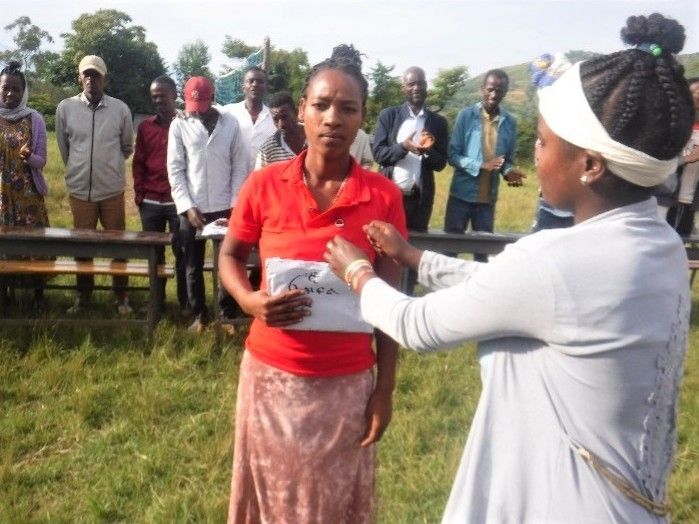
One of the SHG members returned to primary school, excelled academically, and was recognized with top honors, receiving commendation for her achievements.
Moreover, as women's incomes improved household finances, there was a noticeable change in men's attitudes. Initially, some men were hesitant about women leaving home for training or business activities, but as they experienced the benefits of improved household income, they began to support women's income-generating activities by taking on responsibilities such as water fetching, household chores, and childcare themselves. Surveys revealed that after the project began, women gained the ability to decide on expenses such as food and education, and they could now speak up alongside men in the community without facing discrimination.
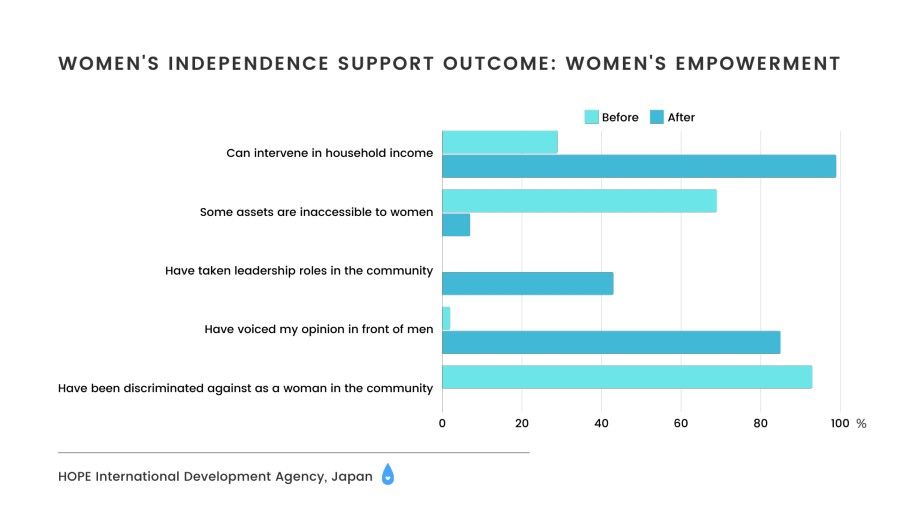
Through this project, HOPE experienced the synergistic effects of implementing both water supply system installation and the SHG approach simultaneously. By reducing the burden of water-fetching labor for women through the installation of water supply systems and providing them with opportunities for income-generating activities, we efficiently implemented interventions. Additionally, by involving women who had previously been marginalized in rural areas in SHG activities, they quickly acquired business skills and achieved economic and psychological independence, akin to fish finding water. Stimulated by the advancement of women, men also became actively engaged in community development, demonstrating a sense of self-reliance. The sight of women confidently speaking out during the project handover ceremony to government officials is a testament to the success of the project. Residents of the project area expressed their determination to continue maintaining the water supply facilities and SHG activities even after the end of HOPE's support, demonstrating their empowerment and self-sufficiency.
We would like to express our gratitude for your support and the grant from the Ministry of Foreign Affairs, which enabled the successful completion of the three-year project. HOPE will continue to support the path to self-reliance for those in Ethiopia who have not yet received assistance!

